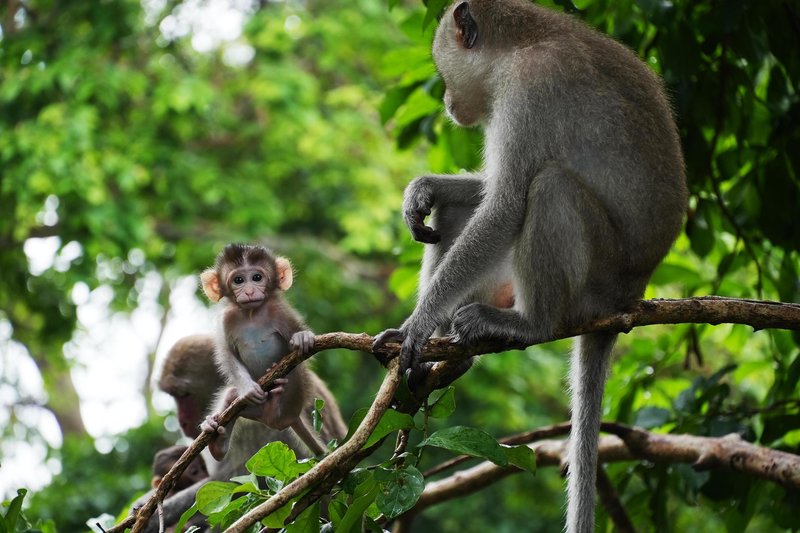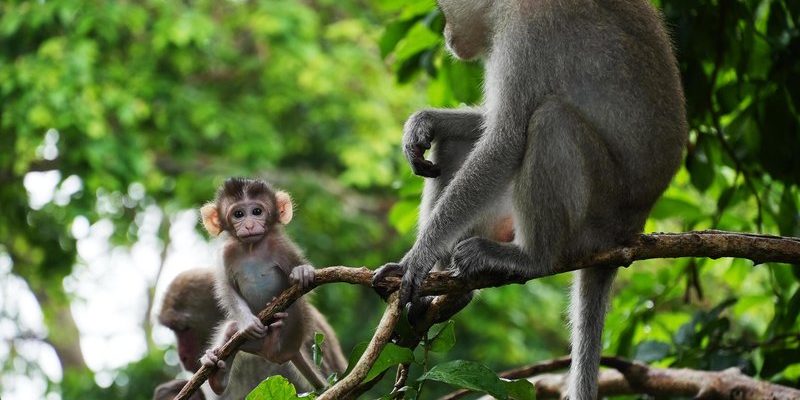
You might be wondering how monkeys fit into this big picture. Well, consider this: just like a conductor leading an orchestra, monkeys help to harmonize the various elements of their habitat. They contribute to seed dispersal, help maintain plant diversity, and even influence the populations of other species. By exploring their roles, we can appreciate how integral these creatures are to their environments.
Seed Dispersers
One of the most important roles that monkeys play in their ecosystems is that of seed dispersers. When a monkey eats fruit, they don’t always digest the seeds inside. Instead, the seeds often pass through their digestive system and get excreted far from the original fruit tree. This process helps plants to spread, increasing biodiversity in the area.
Think about it this way: if a monkey eats a mango in one spot and then meanders a little while later, there’s a chance it’s planting a new mango tree somewhere else. This not only helps with plant propagation but also supports the entire ecosystem by encouraging a variety of plants to thrive.
Moreover, a greater diversity of plants leads to a more robust habitat for other species. Monkeys contribute to the growth of fruit-bearing trees, which then provide food for many creatures, creating a chain reaction that supports countless lives within the forest.
Maintaining Forest Health
Monkeys are essential for maintaining the health of forests. They play a critical role in the nutrient cycle by consuming fruits and other plant materials. When they move through their environments, they help to break down organic matter, enriching the soil. This healthier soil promotes better plant growth, which in turn supports animals and insects that rely on those plants for food and shelter.
In this way, monkeys act as nature’s caretakers. Their feeding habits encourage the growth of new vegetation and contribute to the overall vitality of the forest. You’ll often find that areas with healthy monkey populations also have lush greenery and diverse wildlife, creating a thriving ecosystem.
Influencing Animal Populations
Monkeys aren’t just about plants; they’re also influential in regulating animal populations. When monkeys consume fruits, they don’t just eat everything in sight. They often choose specific fruits or plants depending on their nutrient needs, which helps keep the ecosystem in balance. By selectively foraging, they prevent any one plant species from becoming too dominant.
This balance is crucial. When monkeys keep plant populations in check, they allow other animals to thrive too. For example, insects, birds, and other mammals living in the same area benefit from the variety of plants that remain. Without monkeys to help manage these populations, certain species might overtake the landscape, leading to decreased biodiversity.
Social Structure and Community Impact
Beyond their ecological roles, monkeys also have complex social structures that can be fascinating to observe. Many species live in groups, which fosters cooperation and social learning among individuals. This social dynamic can impact their environment directly and indirectly.
When monkeys work together, they are more effective at locating food and defending against predators. A cohesive group can be better at finding resources, which means they can thrive in their environment. This success allows them to reproduce and contribute their genes to future generations, ultimately maintaining the species and its role in the ecosystem.
Additionally, their social activities—like grooming and playful interactions—can lead to stronger bonds within the troop, ensuring survival and efficiency in resource gathering. This makes the ecosystem more resilient against changes and disturbances.
Indicators of Ecosystem Health
Monkeys can also serve as indicators of ecosystem health. Because they are sensitive to changes in their environment, a decline in monkey populations can signal broader ecological problems. For example, habitat destruction, pollution, and climate change can all impact monkey survival.
When researchers notice a drop in monkey numbers, it often means that there are more significant issues at play. By monitoring these populations, scientists can assess the overall health of the forest and identify areas that need attention. This is crucial for conservation efforts, as protecting monkeys means protecting many other species and their habitats.
The Role of Monkeys in Cultural Contexts
In many cultures around the world, monkeys hold significant cultural value. They’re often seen as symbols of playfulness and intelligence. In some regions, monkeys are revered and protected, highlighting their importance not just ecologically but also culturally.
Moreover, communities that live near monkey habitats often rely on them for ecotourism opportunities. Watching these lively animals can attract visitors, offering economic benefits while promoting conservation efforts. This connection between humans and monkeys can foster a greater appreciation for the environment and encourage sustainable practices.
Conservation Challenges and Efforts
Despite their importance, monkeys face numerous challenges. Habitat loss due to agriculture, logging, and urbanization threatens their survival. Additionally, hunting and illegal wildlife trade pose significant risks. To combat these issues, conservation efforts are crucial.
Many organizations are working to protect monkey habitats and ensure sustainable practices within those regions. Wildlife reserves and protected areas help provide safe havens for monkeys, allowing them to thrive and continue their essential roles in the ecosystem. Community education and involvement can also play a key part in conservation success, promoting coexistence with these remarkable creatures.
In conclusion, monkeys are not just fascinating animals; they play a critical role in their ecosystems. From seed dispersal to maintaining biodiversity and acting as indicators of environmental health, their contributions are invaluable. Protecting them is not only about preserving a species but also about safeguarding the delicate balance of life within their habitats. So, next time you think of monkeys, remember they’re more than just entertainers of the animal world—they’re essential players in the complex game of nature.

